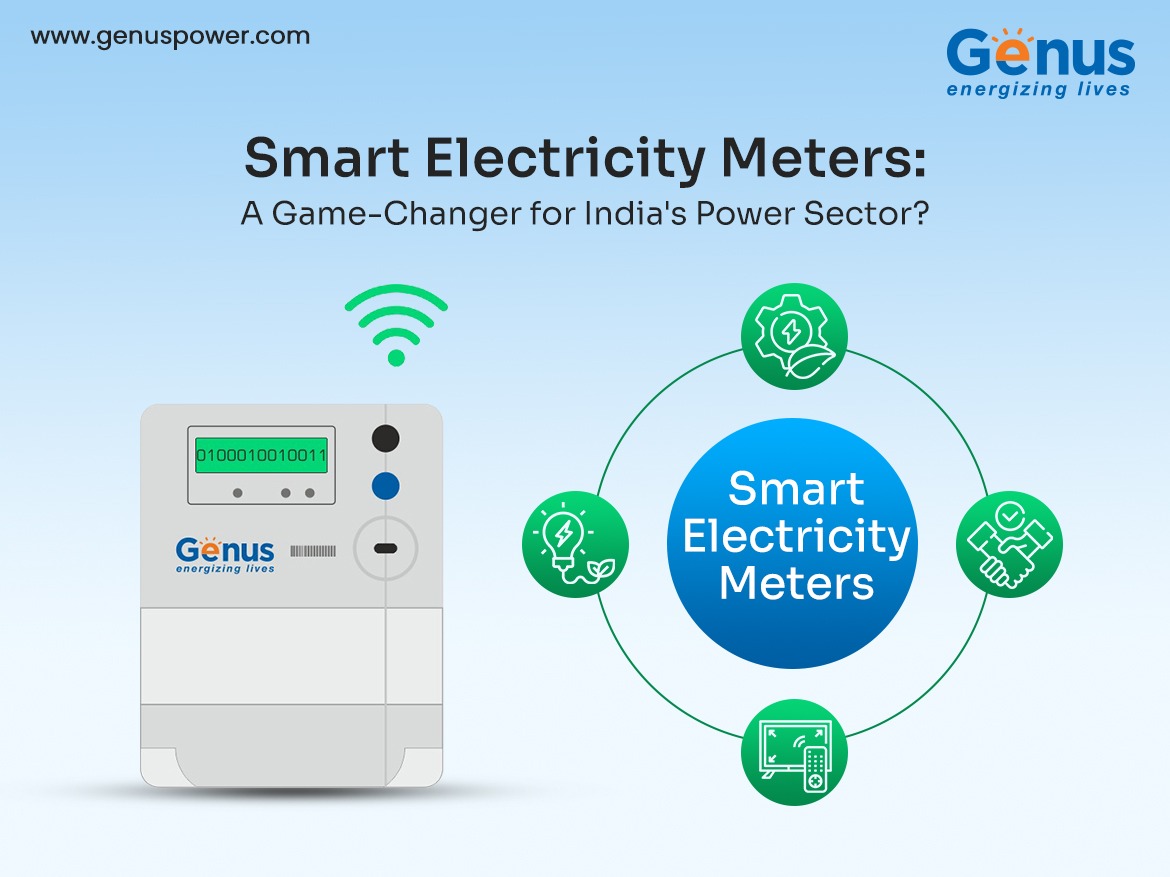
As one of the world’s fastest-growing economies, energy consumption patterns in India have seen a paradigm shift over the past few decades. From urban skyscrapers to rural homes, the demand for electricity in India has surged. This has revealed both the potential and challenges of the nation’s power sector.
When we talk of this transformation in the power sector in India, a standout innovation is the deployment of smart electricity meters. These meters, designed to revolutionize how electricity is consumed and managed, represent more than just a technological advancement; they signify India’s commitment to modernization, efficiency, and a sustainable future.
In this post, we will discuss the role of these smart meters and their potential to redefine energy consumption in a rapidly developing nation, India.
At its core, a smart electricity meter functions similarly to traditional ones – to record, monitor, and analyze the energy consumption of residential, commercial, and industrial electricity usage, ultimately transmitting this information wirelessly to the discom.
However, what sets these meters apart is the communication module in these digital devices. These smart devices allow utility operators to receive regular updates on frequent intervals as defined by the utility.Moreover, with some of the latest smart meters offering in-depth energy analysis during various times of the day, we, as customers, can effortlessly modify and manage our energy consumption more efficiently.
Two primary configurations dominate the smart meter scene: single-phase and three-phase.
Energy requirements are the main factor in determining what type of meter to use for any given scenario. Places that require high amounts of power supply, such as commercial spaces, factories, workshops, industries, etc., lean towards a 3 phase meter box India.
On the other hand, domestic electricity needs are relatively lower than commercial or industrial needs. So, most households in India use single-phase meter devices.
The power sector in India has long grappled with significant transmission and distribution (T&D) losses. For instance, there was a staggering 20% loss in transmission and distribution of electricity India in 2021. Such extensive losses not only put tremendous strain on the country’s resources but also highlight systemic inefficiencies and challenges.
Several factors, including aged infrastructure, power thefts, human errors, and other discrepancies, fuel these T&D losses. States like Gujarat, Tamil Nadu, Delhi, etc., have made commendable efforts to narrow down the losses.
Technological interventions, such as the adoption of smart meters and policy-driven reforms, can ensure that electricity generated reaches its intended recipients efficiently.
Smart electricity meters are undoubtedly the nerve endings of a smart grid system. A smart grid is an electricity network that’s responsive, adaptive, and efficient, in which smart meters act as crucial data points. These smart electricity meters collect consumption data and communicate it to discoms in real time, allowing for an immediate response to changing demands.
This two-way communication enables better load balancing, reducing energy wastage and peak demand challenges. And for a developing country like India, which is relentlessly striving to upgrade its power infrastructure, these meters hold the power to pave the way for a promising future for the power and electricity Indian sector.
Smart power meters are a game changer when it comes to smart energy management. Instead of relying on monthly bills to gauge consumption, households and businesses can access real-time data, actual patterns of their electricity use, and other valuable insights, facilitating better-informed decisions and optimal energy utilization.
Smart meters continuously communicate with utility operators, providing them with insights into the grid’s health status. For smaller usage limits, single phase meter price suits better, while a three-phase meter is more appropriate for commercial and heavy usage.
These meters enable proactive adjustments by predicting surges in demand and identifying weak spots. The result? Fewer outages and a much more stable electricity supply, ultimately ensuring the power grid runs seamlessly and efficiently.
With smart energy meters, you no longer need to be physically present to read or understand your electricity consumption data. You can access, monitor, and control your electricity usage – anywhere and anytime. Moreover, with associated apps or platforms, users can track real-time consumption, set limits, or even schedule appliance operations.
Smart meters are capable of seamlessly integrating with renewable power sources, providing data on how much energy is generated, stored, or sent back to the grid. Smart meters, in this regard, bridge the conventional and the renewable, pushing India closer to its sustainable energy goals.
Read More –Ensuring Efficiency In The Energy Industry With Smart Grid Solutions
The future of smart metering in India looks exceptionally promising, especially with significant efforts being made in technological advancements in the electricity India sector. The Indian government is progressively supporting future-forward initiatives with the goal of integrating technology with the existing grid system, enhancing accuracy and efficiency.
One of the most notable ventures driving this vision forward is the recent collaboration between Genus Power Infrastructures and GIC, Singapore. Genus Power, recognized for its smart metering solutions, will be the exclusive supplier of smart meters and associated services for this platform. With an initial capital outlay of $2 billion, this is the largest deal in the nation’s smart power metering sector.
With such grand-scale collaborations and resourceful backing from both private and public sectors, the roadmap for smart metering in electricity India is incredibly promising and expansive.
As India progresses, the synergy of technology and energy will undoubtedly play a pivotal role in establishing a more efficient, sustainable, and empowered nation. Visit our website to know more about smart meters.